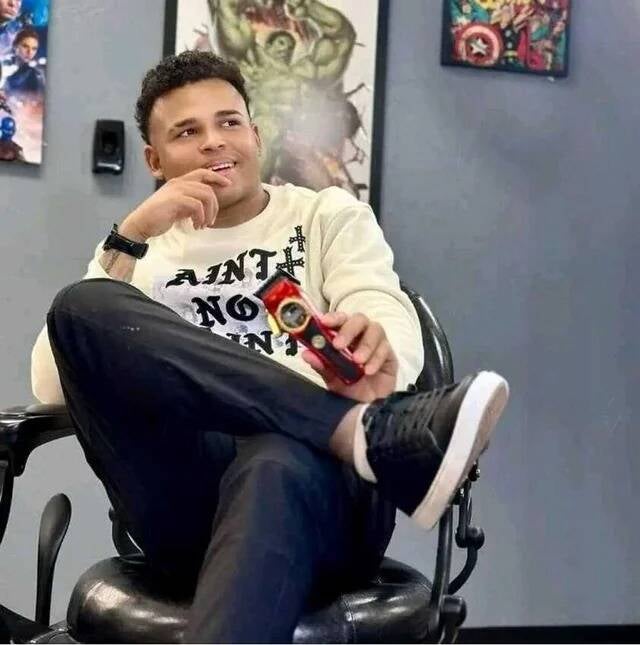

Francisco Garcia Casique left Venezuela in 2019, first to Peru, seeking new opportunities as overlapping economic, political and social crises engulfed the country according to his mother, Mirelys Casique Lopez. "He doesn't belong to any criminal gang, either in the US or in Venezuela… he's not a criminal," Ms Casique said. "What he's been is a barber.
"Francisco entered the United States in December 2023 and surrendered to authorities, according to his brother Sebastian. They were concerned with his tattoos “which read “peace and list the names of his grandmother, mother and sisters” Ms. Casique said and they detained him for two months in Dallas, Texas, while they investigated possible gang connections.
After appearing before an immigration judge, he was released by a Texas judge in April 2024 with an electronic bracelet to monitor his movements before he could be repatriated to Venezuela, she said.A review of federal court records found no criminal court cases associated with Garcia Casique.“I told him to follow the country’s rules, that he wasn’t a criminal, and at most, they would deport him,” his mother said.“But I was very naive – I thought the laws would protect him.”
Francisco was detained by immigration authorities on February 6th after going to an ICE office for a routine appointment, his brother told ABC News.According to his brother, Francisco was a professional barber who aspired to start a career in the United States. "[He] was hoping for a better future to help us, help all the family members, and look at the situation now," his brother said.
Earlier this month, Francisco called his family from the detention center in Texas where he was being held to let them know that he believed he was being deported to Venezuela. A few days later, his family recognized his brother in a photo of prisoners sent to the CECOT torture prison in El Salvador posted on social media by the White House."It's a nightmare," his brother told ABC News. "Trump's government said they were going after the worst criminals, so we imagined he was going after someone who had killed people in the U.S.," Ms. Casique said, adding that her son doesn't have a criminal record in the U.S. or Venezuela.
She provided NPR with an official document from Venezuela stating García does not have a criminal record."He followed the rules… I feel we were very naive," she said. "We trusted that the U.S. was going to respect his rights — they don't respect human rights."(information taken from articles published by ABC and NPR)
#bluetrianglesolidarity